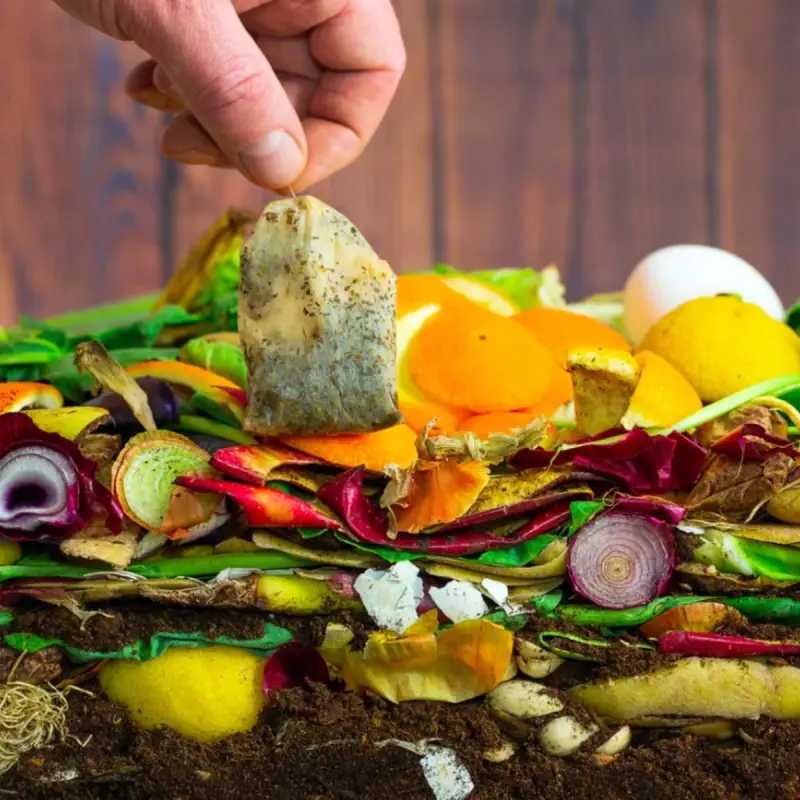Home composting is an effective way to reduce household waste and contribute to environmental sustainability. By composting organic waste, we can improve soil health, reduce landfill waste, and lower our carbon footprint. But can you put tea bags in a compost bin?
This is a common question for those looking to compost effectively while minimizing contamination. In this article, we will explore the compostability of tea bags, proper disposal methods, and the best compostable bags for compost bins.
If you have any questions about this content, feel free to contact us.
What Is Composting?
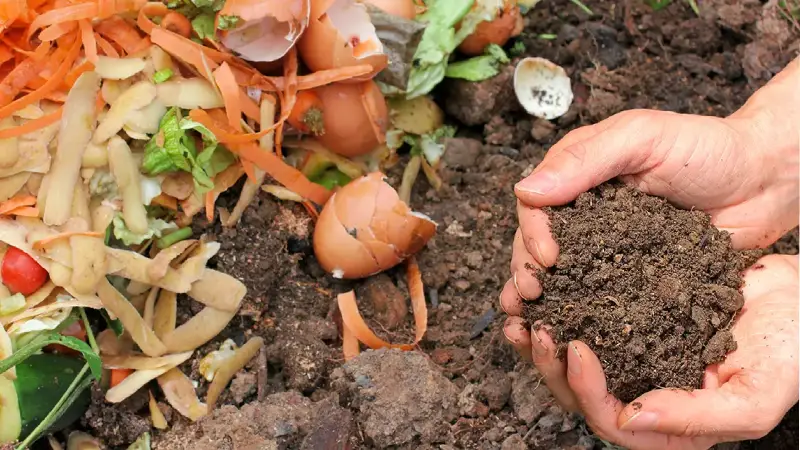
Composting is a natural process where organic materials decompose into nutrient-rich soil, which can be used to enhance plant growth. It involves microorganisms breaking down waste under the right balance of carbon, nitrogen, oxygen, and moisture.
Key Roles of Composting:
- Waste Diversion:
- Composting significantly reduces the volume of organic waste sent to landfills. This helps to minimize the production of methane, a potent greenhouse gas.
- Soil Enhancement:
- Compost is a valuable soil amendment. It improves soil structure, increases water-holding capacity, and provides essential nutrients for plant growth.
- Environmental Benefits:
- By reducing the need for synthetic fertilizers, composting promotes healthier ecosystems and reduces chemical runoff.
Common Composting Materials
Items You Can Compost:
- Fruit and vegetable scraps
- Coffee grounds and filters
- Eggshells
- Grass clippings and leaves
- Cardboard and paper (uncoated)
- Tea bags (some)
Items You Should Avoid Composting:
- Dairy products
- Meat and bones
- Oily or greasy food scraps
- Plastic-coated materials
- Certain tea bags (non-biodegradable ones)
Can You Put Tea Bags in a Compost Bin?
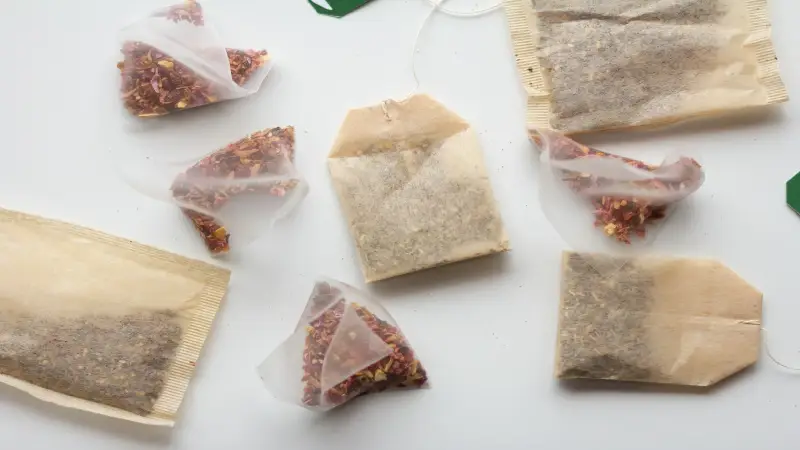
The simple question of whether tea bags belong in your compost bin has a nuanced answer, hinging primarily on the materials used in their construction. Understanding these materials is crucial for successful and environmentally responsible composting.
Analyzing Tea Bag Materials: A Deeper Dive
- Paper Tea Bags:
- These are the most commonly perceived as compostable, and rightly so, provided they are made from pure, untreated paper.
- However, many paper tea bags are reinforced with a thin plastic lining, often polyethylene, to prevent them from tearing during steeping. This lining is not biodegradable and will contaminate your compost.
- To identify truly compostable paper tea bags, look for certifications like ASTM D6400 or EN 13432, which guarantee biodegradability.
- Unbleached paper tea bags are the best. Bleached paper can contain chemicals that may be undesirable in your compost.
- Silk or Nylon Tea Bags:
- These materials are synthetic polymers and are inherently non-compostable.
- They will not break down in a compost environment, regardless of the conditions.
- Using these bags in your compost will result in plastic contamination, which can have detrimental effects on soil health and the environment.
- Some companies market these products as “silken” tea bags, but they are almost always a form of plastic.
- Stapled Tea Bags:
- Many traditional tea bags are sealed with small metal staples, typically made of aluminum or steel.
- These staples will not decompose and must be removed before composting.
- Failure to remove them will result in metal fragments in your finished compost.
- Even if the string is cotton, the crimped metal portion that holds the string to the bag must be removed.
- “Biodegradable” or “Compostable” Tea Bags:
- Many companies are now producing tea bags from plant-based materials like PLA (polylactic acid) derived from corn starch or other plant fibers.
- While these are marketed as biodegradable or compostable, it is important to verify they are certified to meet composting standards.
- Some require industrial composting facilities to break down, and may not break down in a home compost bin.
- Always look for certifications.
How to Compost Tea Bags: Step-by-Step Guide
- Step 1: Identify the Tea Bag Material with Precision:
- Carefully examine the tea bag. Look for any plastic sheen or feel.
- Check the packaging for certifications or clear indications of compostability.
- If unsure, err on the side of caution and avoid composting the bag.
- If you can see a plastic lining on the inside of the bag, do not compost.
- Step 2: Meticulous Removal of Staples and Strings:
- Use pliers or your fingers to carefully remove any metal staples.
- If the string is plastic-coated, cut it off and discard it.
- Be sure to check for any small metal crimps that connect the string to the bag.
- Step 3: Optimizing Decomposition by Opening the Tea Bag (Optional but Recommended):
- Opening the tea bag and emptying the loose tea leaves directly into the compost pile accelerates decomposition.
- This exposes the tea leaves to more surface area, allowing microorganisms to break them down more efficiently.
- If the bag itself is certified compostable, it can be added to the compost as well.
- Step 4: Strategic Placement in Your Compost Bin:
- Distribute the tea leaves or the compostable bag evenly throughout the compost pile.
- This ensures proper aeration and prevents clumping, which can hinder decomposition.
- Ensure a good balance of greens and browns in your compost.
- Keep the compost moist, but not soggy.
Additional Considerations When Put Tea Bags in a Compost Bin:
- Compost Maturity:
- Allow sufficient time for the compost to mature before using it in your garden.
- This ensures that all materials, including tea bags, have fully decomposed.
- Compost Aeration:
- Regularly turn your compost pile to provide oxygen to the microorganisms.
- This is essential for efficient decomposition.
- Moisture Control:
- Maintain a moisture level similar to a damp sponge.
- Too much moisture can lead to anaerobic conditions and unpleasant odors.
- Local Guidelines:
- Always check your local municipal composting guidelines. Some areas have very specific rules.
By following these enhanced guidelines, you can confidently and responsibly compost tea bags, contributing to a healthier environment.
What Bags to Use for Compost Bin?
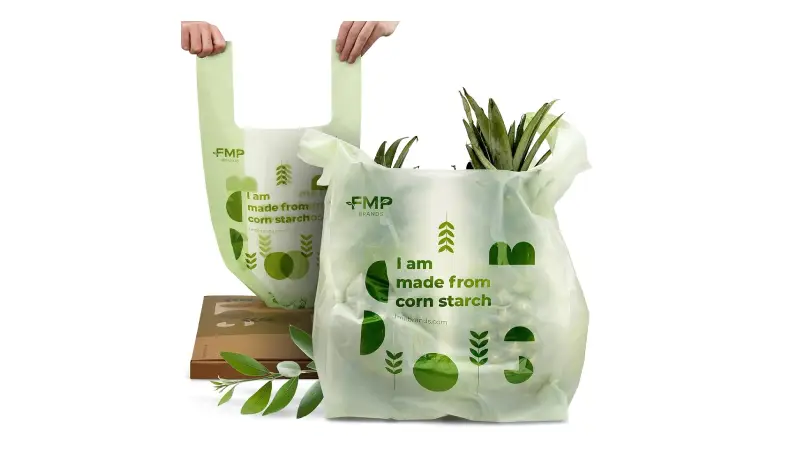
Choosing the right bag for your compost bin is essential for efficient and environmentally responsible composting. Here’s a guide to help you make the best choice:
Why Use Compostable Bags?
Using the correct bags ensures that your compostable waste will be accepted and processed.
Environmental Benefits:
Compostable bags are designed to break down naturally in a composting environment, reducing plastic waste and contributing to a circular economy.
They prevent the contamination of compost with microplastics, which can harm soil health and ecosystems.
Convenience:
Compostable bags make it easier to collect and transport food scraps and other organic waste.
They help keep your compost bin clean and reduce odors.
Municipal Compliance:
Many cities and municipalities require the use of certified compostable bags in their composting programs.
Types of Compostable Bags
Certified Compostable Bags:
- These bags are made from plant-based materials, such as cornstarch or other biodegradable polymers.
- They are designed to break down completely in composting conditions, leaving no harmful residues.
- These are the best option.
Paper Bags:
- Paper bags are a natural and compostable option.
- They are particularly well-suited for dry composting materials.
- However, they may not be ideal for wet compost, as they can disintegrate.
- It’s crucial to distinguish between “biodegradable” and “compostable.”
- “Biodegradable” simply means that a material can break down, but it doesn’t guarantee that it will do so in a composting environment or that it won’t leave harmful residues.
- It is very important to make sure that the Biodegradable bags also are labled as compostable.
- Always look for certified compostable bags.
| Type | Description | Pros | Cons |
|---|---|---|---|
| Biodegradable Plastic Bags | Made from plant-based materials | Strong, water-resistant | May take longer to break down |
| Paper Bags | Made from recycled paper | Fully compostable, affordable | Less durable, can tear easily |
| Compostable Liners | Specially designed for compost bins | Break down efficiently | May not be as strong as plastic alternatives |
What Standards Should Compostable Bags Meet?
- ASTM D6400 (USA):
- This standard specifies the requirements for plastics designed to compost aerobically in municipal or industrial facilities.
- Bags that meet this standard will break down completely and safely in composting environments.
- EN 13432 (Europe):
- This European standard defines the requirements for packaging recoverable through composting and biodegradation.
- It ensures that bags will decompose within a reasonable timeframe and without releasing harmful substances.
- BPI Certification:
- The Biodegradable Products Institute (BPI) certifies compostable products in North America, ensuring they meet ASTM D6400 standards.
- Looking for the BPI logo is a reliable way to identify certified compostable bags.
By understanding these factors, you can choose the right compostable bags for your needs and contribute to a more sustainable environment.
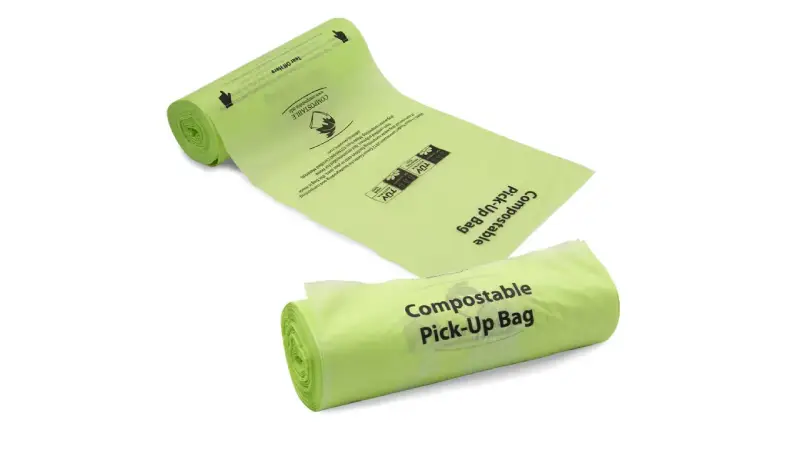
Practical Applications and Recommendations
Best Practices for Home Kitchen Composting
- Use countertop compost bin bags to collect food scraps efficiently.
- Choose biodegradable plastic bags for compost bin if you need durability.
- Regularly empty your kitchen compost bin to avoid odor buildup.
City-Specific Composting Guidelines: NYC Compost Bins Plastic Bags
In New York City, compostable bags must meet specific requirements. The city advises using NYC compost bin bags that are BPI-certified and meet local composting standards.
Conclusion
Tea bags can be composted, but only if they are made from biodegradable materials. Removing staples and synthetic components ensures proper decomposition.
Additionally, choosing the right compost bin bags is crucial for successful composting. If you’re interested in our compostable packaging products, visit our homepage or contact us for a product catalog.
FAQs About Can You Put Tea Bags in a Compost Bin
Why are tea bags not compostable?
Many traditional tea bags are not compostable due to the inclusion of plastic fibers, often polypropylene, within their structure. These plastic components are designed to provide heat resistance and durability, preventing the bag from disintegrating during steeping.
However, they do not break down in a typical home or municipal composting environment. This results in microplastic contamination, which can have long-term detrimental effects on soil health.
Furthermore, some tea bag manufacturers use bleached paper, which can introduce undesirable chemicals into the compost. Therefore, it is crucial to verify the material composition of tea bags and choose those clearly labeled as compostable to ensure a safe and environmentally friendly composting process.
Which tea bags can be composted?
Tea bags that are certified compostable can be safely added to your compost bin. These bags are typically made from plant-based materials, such as unbleached paper, polylactic acid (PLA) derived from corn starch, or natural fibers like abaca.
To ensure compostability, look for certifications like ASTM D6400 or EN 13432. These standards guarantee that the tea bags will break down completely in a composting environment, leaving no harmful residues.
It is also important to remove any metal staples or plastic-coated strings before composting. By choosing certified compostable tea bags, you can confidently contribute to a sustainable composting practice.
Can you put coffee grounds in compost?
Yes, coffee grounds are an excellent addition to your compost bin. They are a rich source of nitrogen, which is essential for the decomposition process. Coffee grounds also improve soil structure and water retention.
However, it is important to balance them with carbon-rich materials, such as dry leaves or shredded paper, to maintain a healthy compost pile. Coffee filters, if made from unbleached paper, can also be composted.
Avoid adding excessive amounts of coffee grounds at once, as this can lead to clumping and hinder aeration. By incorporating coffee grounds into your compost, you can create a nutrient-rich soil amendment for your garden.
Can you put Lipton tea bags in compost?
The compostability of Lipton tea bags varies depending on the specific product. Some Lipton tea bags may contain plastic fibers, which make them unsuitable for composting. To determine whether a particular Lipton tea bag is compostable, carefully check the packaging for certifications or clear indications of compostability.
If you are unsure, it is best to err on the side of caution and avoid composting the bag. Lipton is however working on making more sustainable tea bags.
When in doubt, it is always recommended to choose tea bags that are explicitly labeled as compostable to ensure a safe and environmentally responsible composting process.
What bags to use for compost bin?
For optimal composting, it is essential to use certified compostable bags or paper liners. These bags are designed to break down completely in a composting environment, leaving no harmful residues. Certified compostable bags meet standards such as ASTM D6400 or EN 13432, which guarantee their biodegradability.
Avoid using plastic bags, as they will not decompose and can contaminate your compost. Paper bags are a suitable option for dry compost materials, but they may not be ideal for wet compost due to their tendency to disintegrate.
When choosing compostable bags, look for certifications from reputable organizations, such as the Biodegradable Products Institute (BPI). BN Pack provides a full line of compostable bags, please contact us for custom orders.
Where to buy compostable bags?
BN Pack specializes in producing a comprehensive range of compostable bags, catering to diverse composting needs. We offer customizable solutions, ensuring our products align with your specific requirements.
Our compostable bags adhere to stringent industry standards, including ASTM D6400 and EN 13432, guaranteeing their complete biodegradability. Whether you require bags for household composting, municipal programs, or commercial applications, BN Pack provides high-quality, eco-friendly options.
We provide many types of compost bin bags, kitchen compost bin bags, compostable compost bin bags, and many more. Contact us today to discuss your compostable bag needs and receive personalized assistance.
